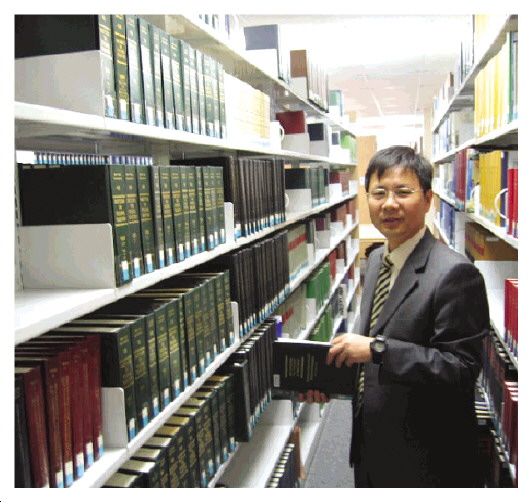China’s first grassroots financial court chief judge speaks on reform and opening-up
 |
|
Wang Xin went to America for training in 2006. After he returned to China, he was appointed as chief judge of financial court. [Photo/Legal Daily] |
As the chief judge of China's first grassroots financial court since the reform and opening-up, Wang Xin has the courage to take the lead in innovation and has abundant insights and reflections on new phenomena and problems.
With the fast growth of Chinese society arising from the reform and opening-up, financial innovations have also rapidly developed. At the same time, financial fraud has expanded greatly through exploitation of loopholes in innovations.
How to balance cracking down on financial crime and stimulating innovation? Wang, from the Financial Tribunal of Pudong New District Court in Shanghai, has been thinking about this problem. “Being a judge for so many years, I gradually came to feel that faced with such financial disputes, judicial personnel should stay humble, modest and prudent.
“Should we pay more attention to rules or concepts of values? This is a problem that financial trial judges should constantly think about,” Wang said. The need for such thoughts has deepened as new financial cases have emerged.
In 2006, Pudong New District Court accepted the first credit card fraud case. Even though a signature was present on the back of the credit card and the payment was authorized with a signature, the credit card user was actually a fraudster. Who should be responsible for this case, the credit card holder, the merchant or the bank?
Once the card was fraudulently used, the consumer, as the card holder and with knowledge of the password, was required to bear the burden of proof for non-disclosure. And the bank was found by the court to be liable for failing to recognize the fraud. “Several years later, the bank was required to bear the full liability,” Wang said.
The transformation of the burden of proof is gradually intensifying the bank’s responsibility to reduce the technological defects and lower the risk of loss to the card holder.
Faced with such changes, Wang thinks that “Our trial concept is constantly improving and it’s necessary to maintain sound financial market order and balance legitimate rights and interest of different financial market management entities.”
Ordinary financial consumers are in a weak position when buying, using or receiving financial products or services and should be given special protection, according to Wang.
The reform and opening-up has helped promote the growth of financial business which has inevitably increased disputes. Consequently, emerging financial formats have put forward higher trial requirements and specialized financial courts have appeared to meet the demand.







